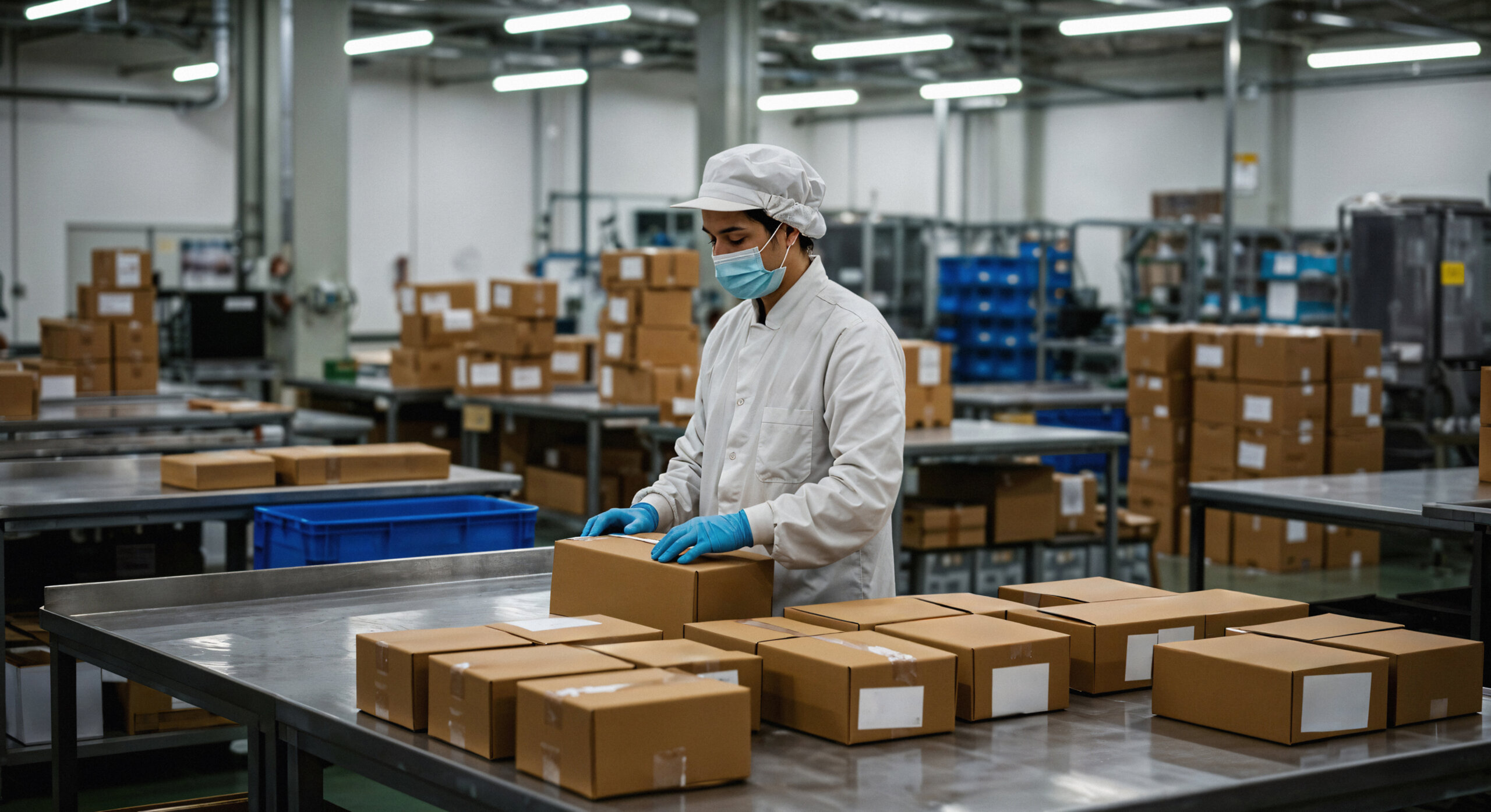Advantages of Industrial Inspection, Track & Trace

Introduction:
In moments’ presto-paced artificial geography, the capability to ensure quality, maintain compliance, and ameliorate effectiveness is critical. Industrial Inspection, Track & Trace( IITT) systems offer a technological backbone that enables manufacturers to meet these challenges head-on. These systems, which encompass a range of processes and technologies, are used to check, cover, track, and trace products throughout the manufacturing and distribution lifecycle.
This composition explores in detail the crucial advantages of Industrial Inspection, Track & Trace in colorful artificial sectors and how it plays a vital part in ensuring safety, quality, compliance, translucency, and functional excellence.
Engineering work is a high-demand field with strong job stability.
1. Ensures Product Quality and thickness
One of the primary objects of any examination system is to maintain the quality and thickness of cultivated products. Automated artificial examination tools use vision systems, detectors, and machine learning algorithms to detect blights similar to
Incorrect labeling
face anomalies
Dimensional crimes
Packaging faults
element misalignment
By catching these blights beforehand in the product line, manufacturers can help prevent imperfect products from reaching guests. The thickness in quality not only protects brand character but also increases client trust and satisfaction.
2. Enhances Regulatory Compliance
Different diligence similar as medicinals, automotive, food & libation, and electronics, are heavily regulated. Governments and transnational associations have strict quality and traceability conditions to ensure consumer safety.
Track & Trace systems help companies comply with regulations by
establishing each stage of the product
Maintaining digital records of product movement
Enabling real-time visibility of force chains
Supporting compliance with ISO, FDA, GMP, GS1, and UDI norms
Similar compliance isn’t only essential for requesting access but also for avoiding heavy forfeitures, recalls, and legal action.
3. Minimizes Product Recalls and Reduces Liability
Product recalls are expensive and dangerous to both finances and brand character. Traceability systems give a granular view of the product and distribution chain. However, manufacturers can
If a disfigurement or impurity is discovered.
snappily identify affected batches
insulate the issue
Minimize the scope of the recall
Communicate effectively with stakeholders
This reduces the time, cost, and impact of the recall, while demonstrating responsibility and commitment to consumer safety.
4. Optimizes Production Efficiency
Industrial Inspection and Track & Trace systems can dramatically ameliorate product effectiveness. Then’s how
Real-time monitoring, Drivers are continuously advised of any anomaly, allowing them to fix problems before they escalate.
Root cause analysis examination data can identify patterns or repeated failures to target process advancements.
Waste reduction. By barring imperfect units beforehand, manufacturers save coffers on packaging, shipping, and rework.
robotization Replacing homemade examinations with automated systems ups output and ensures perfection.
This translates into lower costs, better resource application, and better ROI.
5. Increases translucency in the Supply Chain
Track & Trace tools allow end-to-end translucency across the entire force chain — from raw accoutrements to finished goods. By surveying barcodes, RFID markers, QR codes, or ray markings, manufacturers can trace
Where each element began
When and where it was assembled
Which machine or worker handled it
When it was packed, and to whom
This position of traceability empowers both businesses and consumers. It becomes easier to corroborate authenticity, help counterfeiting, and hold the correct parties responsible in case of crimes.
6. Enhances Brand Protection and Anti-Counterfeiting
In high-value or safety-critical diligence( e.g., medicinals, aerospace, electronics), fake products can be deadly. Track & Trace technologies help in
Applying unique identifiers to each unit or batch
vindicating genuine products at any point in the chain
precluding Argentine request deals
guarding intellectual property
This helps make a secure brand image and boosts consumer confidence.
7. Enables Data-Driven Decision-Making- Making
Modern Track & Trace systems generate vast quantities of data, which can be analyzed using analytics and AI. Manufacturers can use this data to
Examiner outfit performance
Identify backups in the product
prognosticate conservation conditions
Ameliorate soothsaying and force planning
In this way, IITT supports a smart manufacturing ecosystem, enabling better and faster decision- timber.
Wait: By using industrial inspection, Track & Trace systems, you can ensure that each product meets quality standards.
8. Facilitates Recall Management and Crisis Response
In the event of an imperfect or dangerous product reaching the market, a rapid and precise response is critical. Thanks to traceability systems, manufacturers can
Pinpoint the source of the problem
insulate affected products
Notify distributors and retailers promptly
Communicate transparently with guests
This minimizes damage, preserves public trust, and enables effective extremity operation.
9. Supports spare Manufacturing and nonstop enhancement
. Spare manufacturing depends on the capability to identify and exclude waste. Examination and traceability systems contribute to
Monitoring process variability
barring a gratuitous way
Reducing time-out
Helping establish standard operating procedures(SOPs) grounded in real data
This promotes a culture of nonstop enhancement and aligns with doctrines like Six Sigma, Kaizen, and Total Quality Management( TQM).
10. Improves Workplace Safety and Equipment Monitoring
Inspection systems can also be used to
Examiner ministry for overheating, vibration, or misalignment
descry dangerous conditions before they lead to accidents
ensure that safety procedures are being followed
Record mortal- machine relations
This results in a safer work terrain, reduced injury rates, and smaller compensation claims.
11. Boosts client Satisfaction and Trust
Consumers are more informed and conscious. They demand
translucency about product origin
Assurance of quality and safety
Sustainable and ethical sourcing
By using Track & Trace and examination systems, manufacturers can meet these prospects. Participating in traceability data with end-customers builds credibility and differentiates brands in competitive requests.
12. Reduces Losses from Theft and Misrouting
Industrial Track & Trace technology also offers logistics benefits by
Monitoring shipments in real-time
Detecting and precluding theft
Verifying product delivery
Reducing misrouting or force mismatches
These features are especially precious in diligence with complex force chains or high-value goods.
13. Facilitates Global Trade and Export Compliance
For companies that export goods, especially across regulated regions like Europe, the USA, or the Middle East, traceability and examination aren’t voluntary; they are obligatory.
IITT systems help with
Generating import attestation
Proving origin and quality
Aligning with customs and trade laws
Speeding up concurrence at borders
This facilitates smoother global operations and better request penetration.
14. Integrates with Assiduity 4.0 and Digital Transformation
Industrial Inspection, Track & Trace is a foundation of Assiduity 4.0, where physical systems are connected through the Internet of Things ( IoT), Artificial Intelligence( AI), and Big Data.
These systems integrate fluently with
ERP( Enterprise Resource Planning)
MES( Manufacturing prosecution Systems)
WMS( Warehouse Management Systems)
SCM( Supply Chain Management)
The result is flawless digitalization, advanced dexterity, and better performance across the value chain.
15. Customizable Across diligence
While the core principles remain the same, Artificial Inspection and Track & Trace systems can be customized to suit assiduity-specific requirements
medicinals Serialization, batch control, temperature shadowing
Food & Beverage Expiry date verification, allergen shadowing, cold-chain monitoring
Electronics Component verification, tamper-evidence labeling
Automotive Part traceability, VIN examination, safety checks
Textile and Apparel Labeling compliance, origin instrument
This versatility makes IITT a precious tool across all sectors.
Conclusion
Industrial Inspection, Track & Trace systems are further than just quality control tools; they are strategic means that enable companies to stay agile, effective, nimble, and competitive in the ultramodern artificial geography. From perfecting product quality and reducing recalls to enhancing force chain translucency and supporting digital metamorphosis, the advantages are clear and far-reaching.
As global norms become stricter and consumer prospects rise, businesses that invest in comprehensive examination and traceability systems will be well-positioned to lead the market and build lasting trust.








